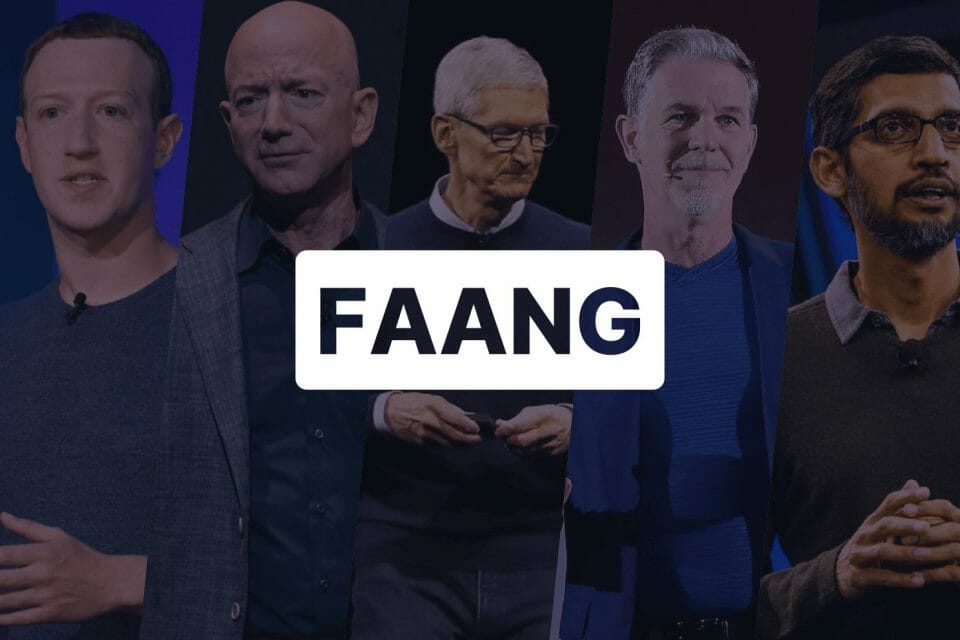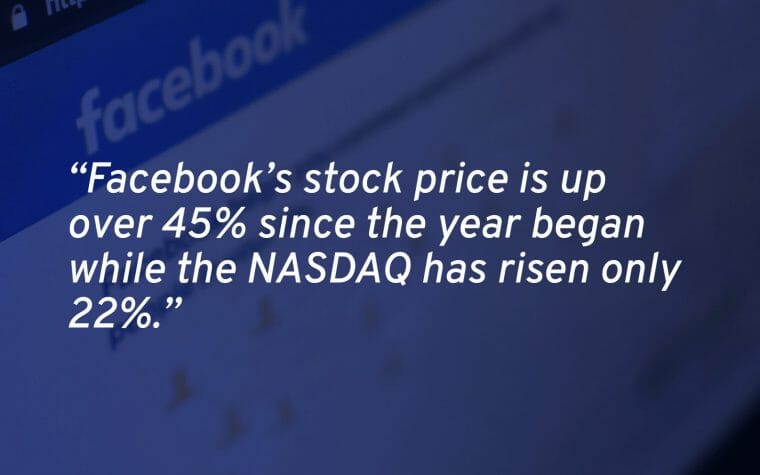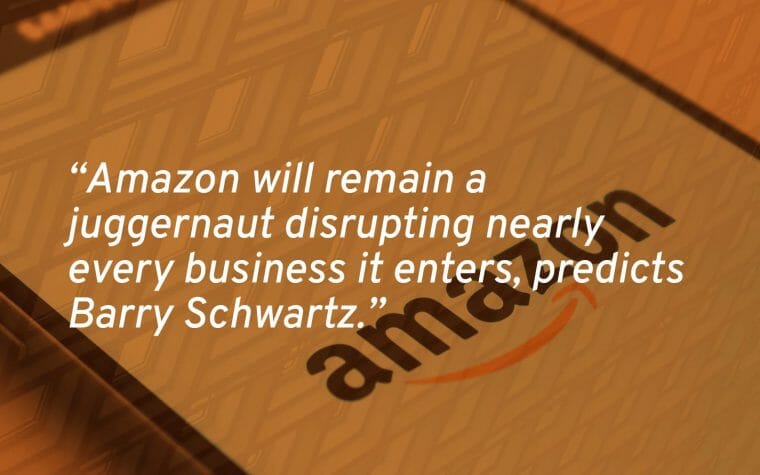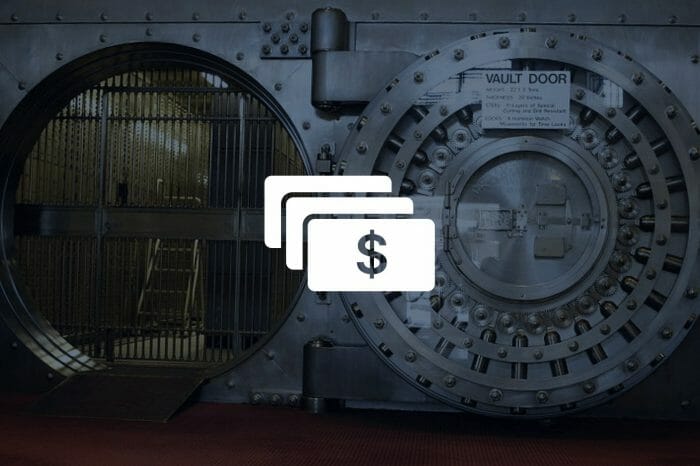FAANG Rollercoaster: Scariest Ride in the World?

American markets are hitting all-time highs and with it the U.S. tech stocks. The recovery of the FAANG stocks is breathtaking. Since the Christmas Eve trough, the NASDAQ has rebounded over 23%, outpacing the S&P at over 20% and the DOW and TSX at around 15.5%. In contrast, over the past 12 months, the NASDAQ at 7.15% is trailing the two other American indices (DOW at 10.71% and the S&P at 9.47%).
Like the NHL’s St. Louis Blues, the FAANGs have bounced from worst to first since Christmastime. 🏆

Now, can the ride continue? Can the US-China trade war, tariffs, weak earnings and a sudden shift in interest rates derail Facebook, Apple, Amazon, Netflix and Google? American as well as European lawmakers are threatening anti-trust legislation and heavier regulation to control these titans who have been allowed to flourish outside most national laws (not to mention a tax-free holiday). If they don’t, will they take American—and Canadian—markets with them down?
Let’s examine each tech giant
Facebook’s woes are no stranger to anyone following the market. Since the Cambridge Analytica scandal broke in March 2018, the king of social media has been pummelled like Muhammed Ali in the 1974 Rumble in the Jungle. CEO Mark Zuckerberg has been grilled by the U.S. Congress (some of whom were clueless about how Facebook works) and the E.U. Almost weekly, Facebook is slammed in the headlines for misusing users’ data or committing some cyber faux pas.
The Facebook rollercoaster
Shareholders (including me) have felt nauseas clinging to the FB-Q rollercoaster, which closed just shy of $210 nearly a year ago, then plunged to $123.02 a week before Christmas. However, lifted by strong earnings, Facebook has since climbed back to close at $197.20 before the Fourth of July. Analysts now have a price target of $218.44 on the stock, and the bulls are outnumbering the bears.

David Burrows echoes many anaylsts who warns that the bad headlines won’t end anytime soon, especially with a U.S. election approaching and the fear of the Russians meddling in the race again. Given these likelihoods, Christine Poole and Zachary Curry remain on the sidelines, skeptical that Zuckerberg can regulate his own company.
Facebook, Privacy and Security
However, Chris Stuchberry points out that Facebook has been pouring money into improving security, while David Baskin doesn’t expect the company to go bankrupt if anti-trust laws pass. In fact, many are betting that monetizing Instagram and recently entering cryptocurrencies are long-term opportunities. Barry Schwartz asks who else trades at 20 times earnings and grows their revenues 30% annually? In fact, Facebook’s stock price is up over 45% since the year began while the NASDAQ has risen only 22%.
The bottom line: Don’t unfasten your seatbelts, because Facebook will remain rocky short-term, but will gain altitude in the long run.
iPhone and the US-China trade war
Analysts agree that the current US-China trade war will eat into iPhone demand, but are split over whether Apple’s bull run will continue. Larry Berman suggests taking profits, but Brian Acker sees a lot of upside, predicting AAPL-Q to hit $240.
Zachary Curry finds Apple a safer tech bet than Facebook and advises buying on dips. In fact, Apple has enjoyed a strong run in 2019, up 45%. It dipped along with the markets in early June, but has since risen 13.79%. It just closed at $204.41, just shy of its price target of $209.06.
Teal Linde predicts that recent American restrictions on Chinese smartphones should support Apple (and Samsung), but Paul Harris warns of volatility. The bottom line: The Apple ride could be bumpy, otherwise it’ll fly sideways for the rest of 2019 with a promising long-term.
Anti-trust threats
Amazon is facing the same anti-trust threats as Facebook, but Paul Harris stresses that breaking up a giant like Amazon is a very long process, pointing to the full decade it took to crack Microsoft. Until then, Amazon will remain a juggernaut disrupting nearly every business it enters, predicts Barry Schwartz.
Likewise, Greg Newman models 35% EPS growth and its high 47 times multiple to drop to 26 by 2021. Baskin echoes a lot of analysts who commend Amazon’s leadership in cloud computing, which continues to grow, and its popular Prime memberships. Robert Lauzon adds that Amazon is entering credit cards and mortgages while John O’Connell notes that it’s entering healthcare in a big way.
The consensus is that there’s a lot of room for Amazon to keep growing.
Ross Healy is a rare dissenter, warning of Amazon’s sky-high 16-times book value, and noting that its fair market value is over 80% lower than its stock price. The bottom line: lean back because the runway for growth is long.

The Future of Netflix
Less certain is the future of Netflix. The elephant in the room is Disney+, the streaming service that will compete with Netflix. Or will it complement Netflix? Don Lato falls into the former camp, and also balks at NFLX-Q trading at a massive 107-times earnings. Ross Healy wouldn’t touch it, with Netflix failing to break resistance around $380, while Stan Wong warns that Netflix is burning through cash to produce (quality) content. However, Cameron Hurst predicts that the Disney will take much longer to impact Netflix that feared. Stan Lauzon owns both Netflix and Disney, but prefers Netflix because he predicts further growth as the streamer penetrates internationally and may expand into music and games. Since January 7, Netflix has been trading in a range between $337-381, but is still short of its 52-week high of $419.77.
The bottom line: Hang onto Netflix until Nov. 12 when Disney+ launches.
Google and political pressure
Google is not only facing political pressure, but internal attacks from its employees over sexual harassment. The search engine giant now looks vulnerable.
However, John Kim feels that at the end of the day advertisers will not abandon Google. Similarly, Chris Stuchberry would wait for a pullback to buy. Gordon Reid predicts that the company’s investment in self-driving cars will pay off down the road (sorry). And who can ignore YouTube?
Of the FAANGs year-to-date, GOOG-Q has struggled the most, gaining only 7.24%. While no one expects Google to vanish anytime soon, the bottom line points to taking some money off the table.
Alphabet Inc. / Google (GOOG-Q)
With interest rates forecast to decline or remain low, money continues to flow into stocks. While utilities and telcos offer safe dividends, the growth remains in high tech. Have a safe ride.











